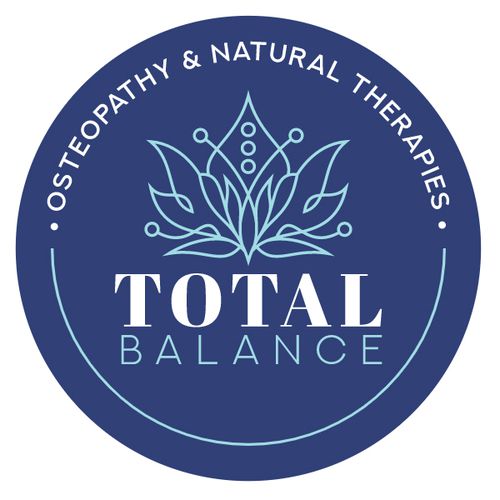
Arthritis is a painful, debilitating disease that can make everyday tasks such as walking, climbing stairs and opening doors difficult. Many people mistakenly believe that if conventional medicines and treatments don't work, then nothing will. But natural therapies can offer hope to many arthritis sufferers and may help relieve their pain and improve their mobility. Here are some treatments that may work for you.
Naturopathy Treats Arthritis Holistically
Tired of taking non-steroidal anti-inflammatory drugs that only provide temporary relief from the symptoms of inflammatory arthritis? Your naturopath will tailor a treatment plan that will not only address arthritis symptoms but, most importantly, activate your body's self-healing mechanism to win the fight against arthritis. Treatment may include supplements, such as glucosamine sulfate and fish oil, and dietary changes to eliminate foods that can interfere with joint repair and increase inflammation such as tomatoes, red meat and preserved foods.
You may also be advised to include certain foods in your diet such as leafy, green vegetables, fresh pineapple and cherries. Other treatments may include fresh juices, herbal teas such as willow bark, capsaicin gel, fenugreek seed and heat packs, to relieve acute joint pain and swelling.
Herbs Help Arthritis
Many herbs have anti-inflammatory effects that can help with any type of arthritis. Some herbal medicines that may provide arthritis pain relief, especially among people with osteoarthritis, include devil's claw, rosehip, willow bark, alfalfa, black cohosh, burdock and juniper. Curcumin, an active ingredient in turmeric, contains high antioxidants and is capable of altering the gene expression of pro-inflammatory cytokines to improve the body's immune response and prevent or treat psoriatic arthritis, ankylosing spondylitis and juvenile arthritis.
Other herbal supplements that can help alleviate chronic pain and inflammation include cat's claw, starflower and capsaicin. The last is an active substance in turmeric that is used in formulating topical creams and gels which can help patients with rheumatoid arthritis.
Homeopathy Eases Arthritic Pain
Homeopathic remedies may help reduce the severity and duration of pain and minimise swelling in your joints. A 2010 study published in The Journal Rheumatology found evidence that homeopathic consultations may reduce the symptoms of rheumatoid arthritis. The researchers of the study said this was because “homeopathy consultations involve a complete exploration of the patient's emotional, spiritual and physical well-being to enable treatment of the whole person, not just the illness.” Remedies may include Apis or Bryonia for warm and swollen joints. For stiff joints, Causticum or Formica may assist (source: Australian Homeopathic Association). Your homeopath will be able to advise you on homeopathic remedies to assist with arthritic pain.
Osteopathy Uses Gentle Techniques for Arthritis
Gentle, manual osteopathic techniques on joints, muscles and ligaments will improve joint mobility and decrease inflammation. Your osteopath may give you an exercise programme and advise you on diet too. Osteopathy helps promote blood flow as it involves the manipulation of muscles and joints, hence its massive benefits to patients with knee osteoarthritis.
Acupuncture Aids Arthritis
Traditional Chinese Medicine doesn't recognise arthritis as being one particular syndrome. Instead, a TCM practitioner or acupuncturist will develop a unique treatment for you based on where they believe the qi (energy) is blocked. By stimulating the body's 14 meridians, or energy channels, with fine, sterile acupuncture needles, the acupuncturist can correct qi imbalances in the body. This in turn relieves pain associated with any form of arthritis as it stimulates the body's natural painkillers called endorphins.
Massage Moves the Pain of Arthritis
Many people with arthritis swear by the benefits of regular massage. Massage can ease the symptoms associated with inflammation, help increase circulation, improve flexibility and mobility and relieve muscle aches and stiffness. Overall, massage gives you a sense of relaxation and wellness. Your massage therapist will develop a massage treatment plan based on your symptoms. Applying moderate pressure on the surrounding muscle and tissue of the affected joints releases natural pain and stress-relieving neurochemicals in the body, which alleviates arthritis pain.
Gentle Exercise Eases Arthritis
Staying active is key to maintaining muscle strength, joint flexibility and managing pain. Yoga and tai chi are both excellent for improving strength, balance and movement. Walking and swimming, especially in warm water, are also beneficial.
If your arthritis is hindering you from engaging in your favourite exercises, a physical therapist can recommend the appropriate exercise therapy to restore your affected joints and ability to perform everyday activities. Other physical therapy treatments that can decrease pain and increase your range of motion include hot and cold treatments, joint mobilisation, light therapy and transcutaneous electrical neuromuscular stimulation (TENS).
A Balanced Diet Prevents Inflammatory Arthritis
As well as supporting weight loss, which is crucial to avoid straining weight-bearing joints, a diet of vegetables, fresh fruits and whole foods will improve your immune system. Additionally, a plant-based diet that is high in fibre and micronutrients will help reduce inflammation, high blood pressure and the risk of developing heart disease, which are all associated with arthritis.
Although a cure for arthritis has yet to be discovered, there are natural ways to prevent the condition from taking control of your life. Your natural therapist will work closely with your medical practitioner to ensure you are receiving the best treatment for your specific symptoms. Always let your practitioner know if you are taking any other medications, vitamins or supplements so that they know which natural remedies for arthritis would suit you best. To find a qualified natural health practitioner in your neighbourhood, check out our full listing on the Natural Therapy Pages.
Originally published on Apr 13, 2011








